 The ‘stay-put penalty’ contributed to constrained housing supply, industry experts said.
The ‘stay-put penalty’ contributed to constrained housing supply, industry experts said.
President Donald Trump is considering supporting a bill to eliminate the capital gains tax on home sales. Continue reading
 The ‘stay-put penalty’ contributed to constrained housing supply, industry experts said.
The ‘stay-put penalty’ contributed to constrained housing supply, industry experts said.
President Donald Trump is considering supporting a bill to eliminate the capital gains tax on home sales. Continue reading
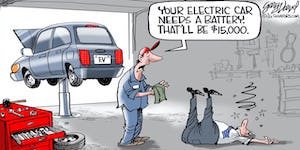 US Electricity Electricity Prices Across the United States Have Continued Their Steep Climb Since Donald Trump Returned to the Presidency in January 2025.
US Electricity Electricity Prices Across the United States Have Continued Their Steep Climb Since Donald Trump Returned to the Presidency in January 2025.
With average residential rates rising faster than the pace of inflation and reaching their highest point in over a decade. Between January and June 2025, electricity prices in the US have risen approximately 6%, according to official data from the US Bureau of Labor Statistics.
The national average price per kilowatt-hour increased from 17.9¢ in January to 19.0¢ in June, marking a confirmed 6.15% increase over the six-month period… (Continue to full article)
Bill Gates Gave So Much Money Away That $51 Billion Just Got Swiped From His Net Worth ~ Now His Former No. 2 and Microsoft Successor Steve Ballmer Is Wealthier Than He Is
 Bill Gates was once the richest man in the world for 18 years, and currently boasts a jealousy-inducing net worth of $124 billion from cofounding the software titan Microsoft. But now his former right-hand man has more money in his bank account than he does, thanks to Gates’ billion-dollar philanthropic spending.
Bill Gates was once the richest man in the world for 18 years, and currently boasts a jealousy-inducing net worth of $124 billion from cofounding the software titan Microsoft. But now his former right-hand man has more money in his bank account than he does, thanks to Gates’ billion-dollar philanthropic spending.
On July 3 last week, Gates was standing on a fortune of $175 billion, ranked as the fifth-wealthiest person alive on the Bloomberg Billionaire Index. But his wealth plummeted over the span of the next couple of days as $51 billion was drained from his net worth, shooting him down the list to 12th place right below fellow tech pioneer Michael Dell.
Gates’ wealth disappeared so rapidly as the index readjusted for the 69-year-old technology mogul’s philanthropic efforts… (Continue to full article)
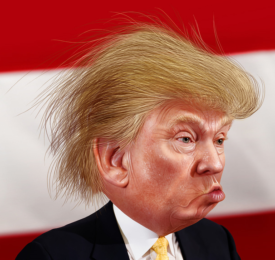 Social Security Gets ‘Trump Bump‘
Social Security Gets ‘Trump Bump‘
Social Security beneficiaries are bracing for what has been dubbed the “Trump bump” in their cost-of-living adjustment (COLA) for 2026, attributed directly to President Donald Trump‘s tariff and trade policies.
This anticipated increase comes at a pivotal time, as the average monthly benefit has recently surpassed $2,000 for the first time in the program’s history, providing a crucial lifeline for aging workers.
According to Gallip polling data, the Social Security Administration revealed that approximately 80% to 90% of retirees rely on their benefits as a significant financial resource. This revelation highlights the importance of accurately predicting their monthly payouts… (Continue to full article)
Trump’s “Big Beautiful Bill” Is a Grotesque Giveaway to Fossil Fuel Billionaires While Adding $3.3 Trillion to Nation’s Debt
Aren’t Republicans the candidates who got elected promising to bring down the spiraling U.S. debt and annual deficits?
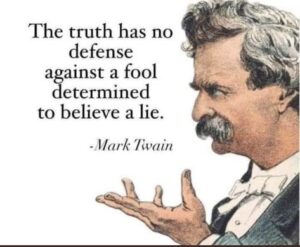 Yesterday, the national debt clocked in at $37 trillion as the Congressional Budget Office (CBO) released a report showing that President Donald Trump’s “One Big Beautiful Bill Act” would add $3.3 trillion to the national debt over the next decade.
Yesterday, the national debt clocked in at $37 trillion as the Congressional Budget Office (CBO) released a report showing that President Donald Trump’s “One Big Beautiful Bill Act” would add $3.3 trillion to the national debt over the next decade.
Donald Trump has been a master of Orwell’s reverse-speak throughout his life. So when he labels federal legislation “Beautiful” when it actually gives massive tax breaks to the wealthiest Americans while cutting critical food and health care benefits to the poor and middle class, Americans should finally accept that they have a clear window into the soul and sociopathy of multi-billionaire Donald Trump…
It sounds more like ‘Big Beautiful BULLSHIT’ (Continue to full article)

…an utter train wreck!
10 Economic Facts That Nobody Can Deny
If you ask 1,000 different Americans about the state of the U.S. economy, you will get 1,000 different opinions.
But what is the truth? In this article, I am going to share information with you that is indisputable. I like to examine things from an analytical point of view, and so I always want to know what the cold, hard numbers are telling me. And what the cold, hard numbers are telling me is very troubling.
The following are 10 economic facts that nobody can deny…… (Continue to full article)
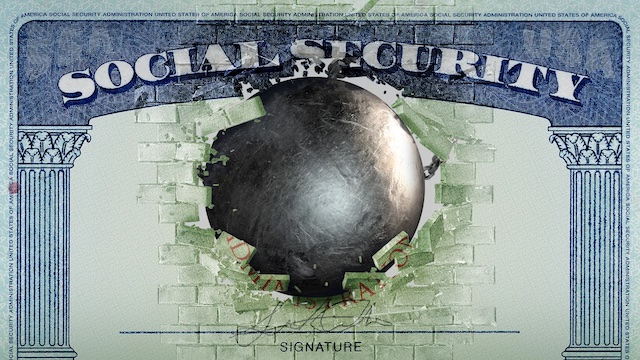
Illustration: Sarah Grillo/Axios
Retirees are facing the prospect of substantial Social Security cuts in just seven years, sooner than projected, due to the “big, beautiful bill,” per an analysis out Thursday from the Committee for a Responsible Federal Budget. Continue reading
The forecast predicts that a dual-earning couple who retire at the start of 2033 would receive $18,100 less a year in vital benefits
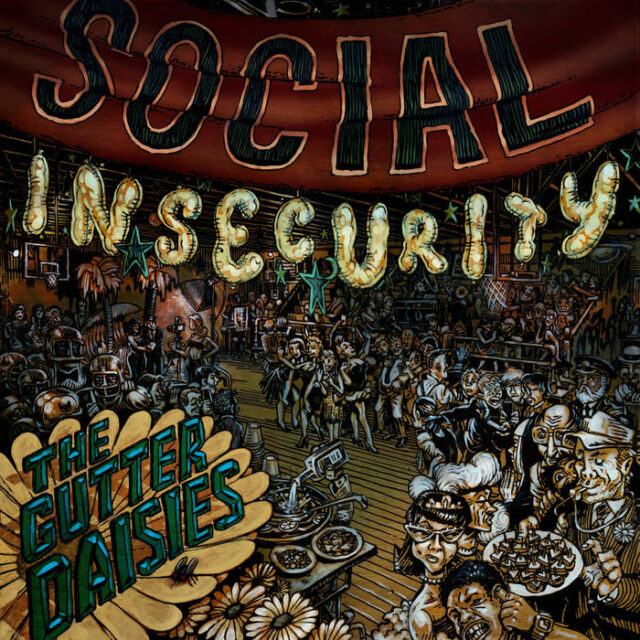 Social Security’s retirement fund is set to run short in just seven years — which could end up slashing benefits for millions of Americans by thousands of dollars a year.
Social Security’s retirement fund is set to run short in just seven years — which could end up slashing benefits for millions of Americans by thousands of dollars a year.
According to latest projections, retirees could face automatic 24 percent benefit cuts as early as the end of 2032.
The new forecast from the nonpartisan Committee for a Responsible Federal Budget (CRFB), released Thursday, moves up the insolvency date for both Social Security and Medicare trust funds. Continue reading
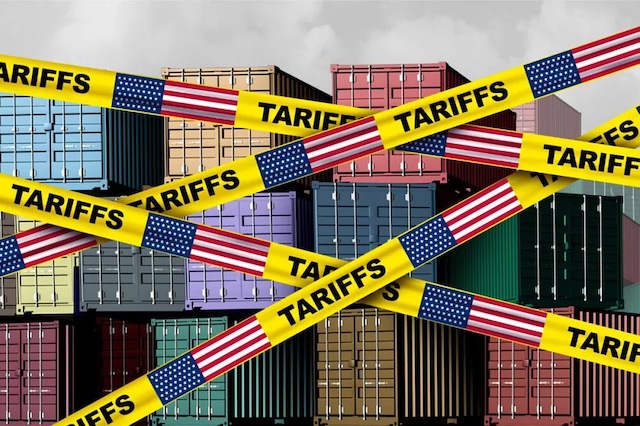 Trump’s so-called reciprocal tariffs are scheduled to go into effect on August 1 after a 90-day delay – just as American families begin back-to-school shopping – and could hike up the cost of consumer goods imported from other countries. Continue reading
Trump’s so-called reciprocal tariffs are scheduled to go into effect on August 1 after a 90-day delay – just as American families begin back-to-school shopping – and could hike up the cost of consumer goods imported from other countries. Continue reading
The US owes a LOT less money to China today than it did a few years ago…
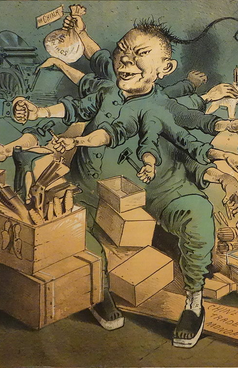 As recently as three years ago, for example, China held $1.3 trillion worth of US government bonds. Today they’re down to around $750 billion.
As recently as three years ago, for example, China held $1.3 trillion worth of US government bonds. Today they’re down to around $750 billion.
In other words, China’s government has decided to cut back on its US dollar Treasury holdings by more than 40% over the past three years.
And at first, that might sound like a good thing – HOORAY! More independence from foreign creditors! America is better off without that Chinese money! Right?
But in reality this is a huge problem. Because it’s not just China. Continue reading
The approval follows Trump signing an executive order to boost domestic mineral production.

The Bureau of Land Management has approved the Spring Valley Gold Mine project in Nevada. The project, located in Pershing County, is expected to create hundreds of jobs in the region, the agency said in a July 15 statement.
“Solidus Resources, LLC, is approved to construct, operate, and maintain an open-pit gold mine, three waste rock facilities, and a heap leach facility,” said the agency. Continue reading
 Do you feel financial stress on a regular basis? If so, you are certainly not alone. As you will see below, a new survey has discovered that more than two-thirds of the entire country is feeling “anxiety and depression” due to financial stress. The cost of living is totally out of control, and it is absolutely crushing the middle class. Earlier today, we learned that the official rate of inflation has gone up again. Continue reading
Do you feel financial stress on a regular basis? If so, you are certainly not alone. As you will see below, a new survey has discovered that more than two-thirds of the entire country is feeling “anxiety and depression” due to financial stress. The cost of living is totally out of control, and it is absolutely crushing the middle class. Earlier today, we learned that the official rate of inflation has gone up again. Continue reading
 Historically, gold has been seen as a more valuable investment than silver, with 24% of Americans saying gold is the strongest investment.
Historically, gold has been seen as a more valuable investment than silver, with 24% of Americans saying gold is the strongest investment.
But that doesn’t mean silver isn’t without its benefits. While it can be seen as volatile, particularly over a short period, silver is often considered an inflation-proof option for investors looking to boost their bank accounts.
To get to the facts on silver and whether it’s a wise investment, here are 14 considerations before you add this shiny commodity to your portfolio. Continue reading
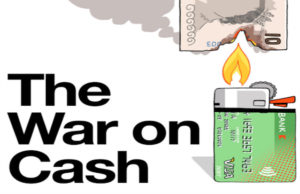 8 Places That No Longer Accept Cash in 2025
8 Places That No Longer Accept Cash in 2025
Not long ago, cash was considered the universal form of payment. Fast-forward to 2025, and a growing number of businesses and venues across the U.S. have completely phased it out.
Whether driven by speed, security, or sheer convenience, many retailers now require credit, debit, or digital wallet payments.
While some applaud the cashless trend for cutting down on theft and streamlining transactions, others argue it excludes those without access to banking. If you still like paying with bills and coins, you might want to avoid these eight places that no longer accept cash.
Wait until YOU Check out THIS list… (Continue to full article)
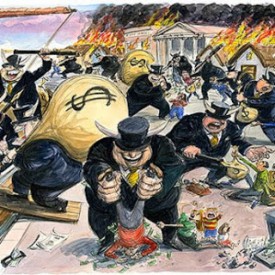
The Looting Bankers
10 Questions Bank Tellers Are Now Required to Ask You
Walking into a bank branch used to be a straightforward affair, but you may have noticed that interactions with tellers have become more inquisitive lately.
Tellers are now trained, and in many cases required, to ask a series of questions that go beyond a simple “how can I help you?” This isn’t because they are being nosy; it’s a result of stricter federal regulations designed to combat financial crimes like money laundering and fraud.
Understanding why they are asking these questions can make your banking experience smoother and help you appreciate the security measures in place.
“This isn’t because they are being nosy”??? The Hell it isn’t. BE CAREFUL!!! (Continue to full article)
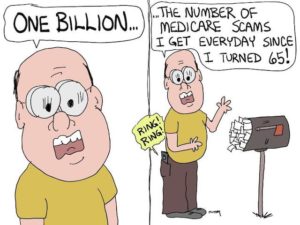 Retired Workers to See Frustrating Change to Medicare in 2026
Retired Workers to See Frustrating Change to Medicare in 2026
It’s only an estimate — but if history is any guide, it’s one you’ll want to watch.
Tucked deep inside the 267-page 2025 Medicare Trustees report is a projection that the standard monthly Medicare Part B premium could rise to $206.50 in 2026.
That’s an 11.6% jump from the $185 premium set for 2025 — and it would be the largest single-year increase since 2016, when premiums climbed 16.1%, from $104.90 to $121.80.
This estimate, however, is not the final number. In fact, it could be even higher… (Continue to full article)
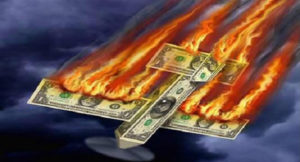 US Dollar Plunges in Worst New Year Collapse in 50 Years Sparking Panic Over Rising Prices
US Dollar Plunges in Worst New Year Collapse in 50 Years Sparking Panic Over Rising Prices
Analysts have sounded the alarm after the value of the U.S. dollar suffered its worst drop in nearly five decades. The sudden plunge in value is reportedly likely to trigger a price hike in everyday items as well as cause visitors to the country to experience a jump in expenses.
According to FactSet, the U.S. dollar has plunged almost 11%. ABC News reported that investors triggered the sudden decrease out of fear of inflation, which could devalue the currency.
It was also reported that the devaluing of the dollar comes as the U.S. Congress is set to implement Donald Trump’s “Big, Beautiful Bill,” which is set to worsen a decades-long trend of expanding the debt that the U.S. owes to other countries.
Panic surrounding the dollar also comes as Trump continues to fluctuate on his trade policy with tariffs… (Continue to full article)
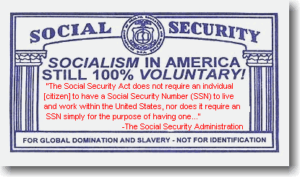 What You Should Know About Social Security if Your Spouse Passes Away
What You Should Know About Social Security if Your Spouse Passes Away
Losing a spouse is one of life’s most painful and challenging experiences. Along with the emotional toll, it can also bring financial uncertainty. Social Security is here to support you during this difficult time.
You may be eligible for Social Security survivor benefits after your spouse passes away – even if you’re divorced. Your eligibility depends on a few key factors Administration, the idea of privatizing Social Security has reared its head once again… (Continue to full article)